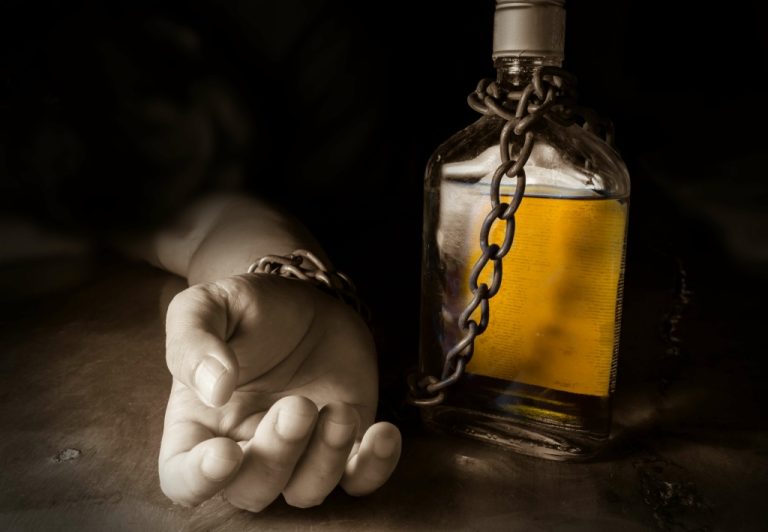The National Institute on Drug Abuse notes that tolerance occurs in a drug or alcohol user when the user needs more of the drug or alcohol to get the same effect that occurred during the initial periods of intake. It’s a grim scenario that unfortunately is found in many drug abuse cases year after year. The term “addiction” has been somewhat controversial history over the years.

But the ICD has yet to catch up and since American billing systems and other records often rely on ICD, this conflation continues to cause problems both in the United States and rest of the world. There is no justification for keeping this misleading term in light of what we now know about the nature of addiction. For one, depending on a substance to avoid physical withdrawal symptoms is neither necessary nor sufficient to define addiction.
Addiction vs. Dependence
Dependence is characterized by the symptoms of tolerance and withdrawal. While it is possible to have a physical dependence without being addicted, addiction is usually right around the corner. Scripps Research scientists have found that LY —a compound that selectively blocks the kappa opioid receptor (KOP)—may reduce drinking in cases of alcohol dependence in animal studies. The findings, which were published in Scientific Reports, could eventually inform new treatment options for people who experience alcohol use disorder (AUD). Although men are more likely to smoke, drink, and use drags, women become addicted more quickly and develop diseases related to substance abuse more quickly than men do, according to a recent CASA report, Substance Abuse and the American Woman. A history of sexual abuse seems to be a factor in whether women abuse alcohol, the report noted.

Untreated substance use disorders – whether they are mild or severe – can be detrimental to a person’s mental, physical, emotional, social, and even financial health. That is why professional treatment is always recommended, no matter whether a person is dependent on a drug or has a full-blown addiction to it. While it isn’t possible to develop an addiction to a substance without repeated use, addictions can form more quickly and easily in certain people.
Phone, Video, or Live-Chat Support
However, there are clear differences between the two terms, several of which deal with the chemical effects that happen to addicted persons. Long-term inpatient treatment programs vary in length, but typically last between 3 to 18 months. This type of rehab is best suited to individuals addiction vs dependence with long-term chronic addictions, especially those who have co-occurring mental health issues. Depending on the severity of the addiction, long-term treatment may be a good option, especially as many programs address the underlying emotional causes of one’s drug abuse.
Compound May Curb Alcohol Dependence – Neuroscience News
Compound May Curb Alcohol Dependence.
Posted: Fri, 29 Mar 2024 21:40:58 GMT [source]
The pain is so randomly up and down that it’s kind of hard to track it. I haven’t experienced any negative side effects in the tapering off process, so I don’t think that it could be said that I was addicted to it. “Physical dependence on a substance (drug or alcohol) may be a component of addiction, but it does not itself equal addiction. Addiction and dependence are two separate conditions relating to substance abuse. Yet because the terms are used interchangeably, the line between them often gets blurred.
Substance use disorder
However, the main characteristic that distinguishes addiction from dependence is the combination of mental and physical dependence with uncontrollable behavior in obtaining and using a substance. People can have just a physical dependence, addiction, or both at the same time. This is when a person depends on a substance or behavior emotionally, such as when stressed. The terms “addiction” and “dependence” can seem similar, but they are different. I suppose that some people would have an addiction problem if they were to take some of the meds I take.
- Addiction is characterized by an inability to stop using a substance, despite the harmful consequences.
- People who are addicted develop a physical and psychological reliance on a substance that leads them to go to extreme lengths to continue taking it.
- When people use the term “dependence,” they are usually referring to a physical dependence on a substance.
- Addiction, on the other hand, is not a predictable drug effect, but rather a disease that occurs in genetically, biologically, and psychosocially vulnerable individuals.
- The THC in both medicinal and recreational cannabis reduces the number of endogenous cannabinoid receptors in the brain and increases dopamine in the Reward Center.
- That’s why we have a comprehensive set of treatment providers and don’t charge for inclusion.
The session will address treatment for substance abuse in broad terms, including some of the trends in pharmacological research that are showing promise, and discuss the latest information on what can work in terms of prevention. This recent upturn in illicit drug use among youths has important implications for substance abuse prevention and treatment efforts. … There is an obvious need to focus immediate attention on children and adolescents. In the long run, the increasing proportion of young people using drugs will probably result in continued pressure on the substance abuse treatment system in future years, as many new drug users progress to addiction and require intervention.
